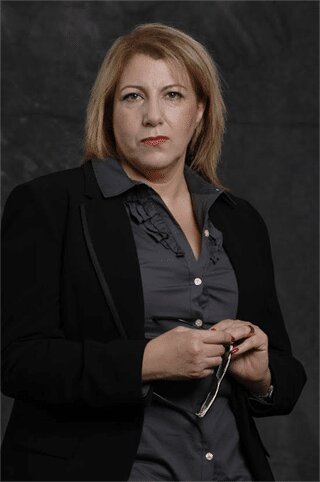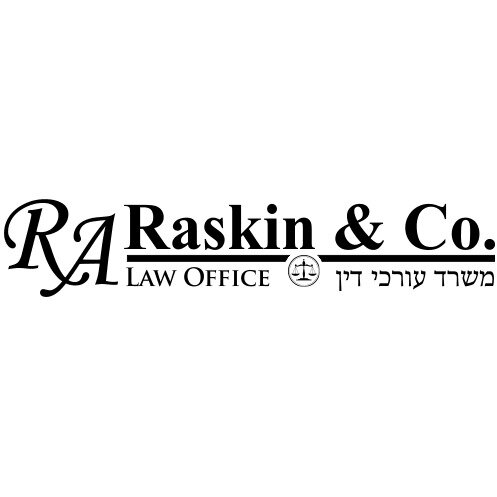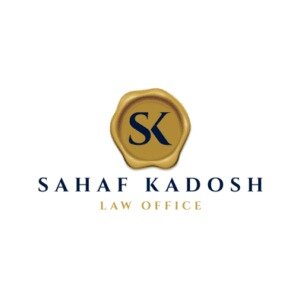Best Faith-Based Law Lawyers in Israel
Share your needs with us, get contacted by law firms.
Free. Takes 2 min.
Or refine your search by selecting a city:
List of the best lawyers in Israel
About Faith-Based Law in Israel
Faith-Based Law in Israel is an integral aspect of the country's legal system, which recognizes the country's diverse religious communities. Each recognized religious group is permitted to handle personal status issues, such as marriage, divorce, and burial, according to its own religious laws and traditions. This pluralistic approach means that Jewish, Muslim, Christian, and Druze communities, among others, have autonomous religious courts with jurisdiction over members of their communities in matters of personal status.
Why You May Need a Lawyer
Individuals may require legal help within the realm of Faith-Based Law for a variety of reasons. Common situations include disputes over religious authority, issues regarding marriage and divorce, and conflicts involving religious inheritance laws. Furthermore, legal assistance may be needed when navigating complex relationships between secular law and religious law, where rights under one system may conflict with obligations under another.
Local Laws Overview
The legal framework in Israel grants significant authority to religious courts. For example, Jewish personal status issues, such as marriage and divorce, are under the jurisdiction of Rabbinical Courts. Similarly, Sharia Courts handle personal status matters for Muslims. These courts operate under their respective religious laws, which can sometimes conflict with civil laws. Understanding these intricate legalities, and knowing which court has jurisdiction, is crucial when dealing with personal status matters.
Frequently Asked Questions
How does Faith-Based Law affect personal status issues in Israel?
In Israel, personal status issues such as marriage, divorce, and burial are handled according to religious law, which means that religious courts have jurisdiction over these matters for individuals belonging to recognized religious communities.
What types of cases do religious courts handle?
Religious courts primarily handle cases related to marriage, divorce, inheritance, and child custody. They also address issues specific to their religious traditions and laws.
Can I have a civil marriage in Israel?
Currently, Israel does not recognize civil marriages performed within the country. However, civilian marriages conducted abroad are recognized for registration purposes.
What should I do if there is a conflict between religious and civil law?
If there is a conflict between religious and civil law, it's crucial to seek legal advice to understand your rights and obligations under each system. A lawyer can help navigate these conflicts and find a legally appropriate resolution.
Is legal representation necessary in religious courts?
While representation is not always legally required, having a lawyer with expertise in Faith-Based Law can be beneficial when dealing with complex legal issues, especially in contentious disputes.
Are decisions by religious courts appealable?
Yes, decisions made by religious courts can generally be appealed to higher religious courts, and in some cases, to the Israeli Supreme Court, especially when there are alleged violations of civil rights or procedural issues.
How does conversion to another faith affect my legal status?
Conversion can significantly impact personal status and legal proceedings in religious courts. It's advisable to consult a lawyer to understand these consequences fully and the process involved.
What if I'm not affiliated with a recognized religious community?
Individuals without affiliation to a recognized religious group often face challenges in certain personal status matters. Legal advice is crucial in such cases to explore available options under civil law.
Can religious courts handle disputes over financial matters?
While religious courts primarily handle personal status issues, they occasionally deal with financial matters, especially if they pertain to marital or familial contexts as per religious law.
What recourse do I have if I disagree with a religious court's decision?
Disagreeing with a religious court's decision usually involves appealing to a higher religious court. In some instances, intervention by Israel's civil courts can be sought, particularly for violations of civil rights.
Additional Resources
For those seeking guidance on Faith-Based Law in Israel, the following resources can be invaluable: the Israeli Ministry of Justice for general legal queries, the Rabbinical Courts Administration for Jewish law issues, the Sharia Courts for Muslim law matters, and various non-governmental organizations specializing in mediation and legal aid within religious contexts.
Next Steps
If you need legal assistance regarding Faith-Based Law, consider consulting a lawyer who specializes in this area. It is essential to find someone knowledgeable about both religious and civil law to effectively navigate the intersection of these two systems. Initial consultations can help clarify your legal standing and the appropriate legal avenues available to you.
Lawzana helps you find the best lawyers and law firms in Israel through a curated and pre-screened list of qualified legal professionals. Our platform offers rankings and detailed profiles of attorneys and law firms, allowing you to compare based on practice areas, including Faith-Based Law, experience, and client feedback.
Each profile includes a description of the firm's areas of practice, client reviews, team members and partners, year of establishment, spoken languages, office locations, contact information, social media presence, and any published articles or resources. Most firms on our platform speak English and are experienced in both local and international legal matters.
Get a quote from top-rated law firms in Israel — quickly, securely, and without unnecessary hassle.
Disclaimer:
The information provided on this page is for general informational purposes only and does not constitute legal advice. While we strive to ensure the accuracy and relevance of the content, legal information may change over time, and interpretations of the law can vary. You should always consult with a qualified legal professional for advice specific to your situation.
We disclaim all liability for actions taken or not taken based on the content of this page. If you believe any information is incorrect or outdated, please contact us, and we will review and update it where appropriate.
Browse faith-based law law firms by city in Israel
Refine your search by selecting a city.
















